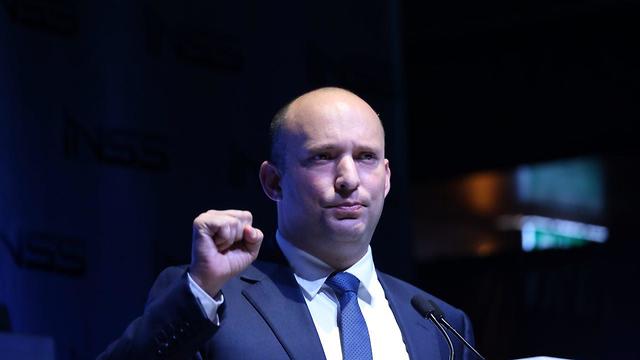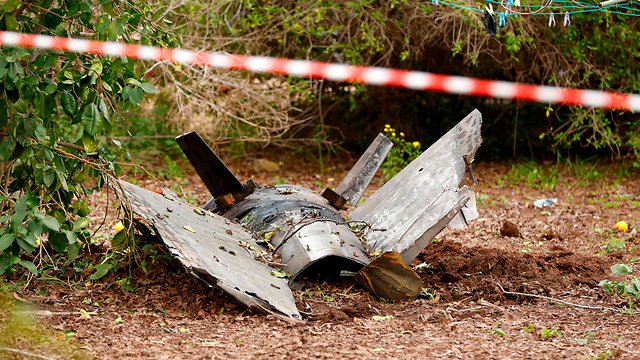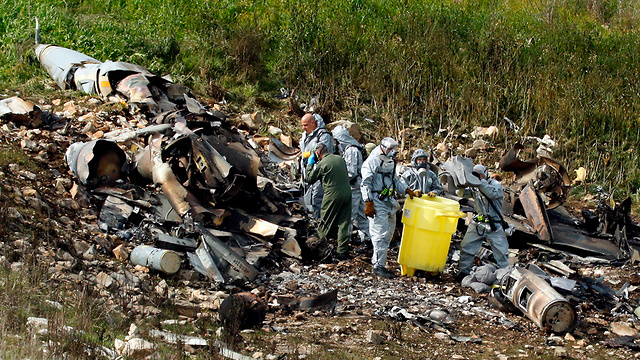

Bennett: Israel must act systematically against Iranian 'octopus'
Education minister argues Israel must work to weaken the 'head of the octopus' in Tehran, which sends tentacles to fight the IDF from Syria, Lebanon and Gaza; 'Khamenei is very generous about Gazan and Lebanese lives, but when it comes to Iranian lives, he tucks tail and runs. He needs to also pay a price.'
Education Minister Nafatli Bennett argued Sunday Israel must act systematically to weaken Iran, "the head of the octopus" sending its tentacles to fight the IDF from Syria, Lebanon and Gaza, while Tehran itself remains immune.
"We need to wage a persistent and continuous campaign—diplomatic, economic, preventative, intelligence-based—against the Al Quds Forces and Iran. Otherwise you're fighting the octopus's tentacles, when you could've neutralized them by neutralizing its head," Bennett explained in an interview with Ynet.
Ayatollah Khamenei, Iran's Supreme Leader, "is very generous when it comes to the lives of Lebanese and Iran's militias from Pakistan and Afghanistan. He's also very generous when it comes to sacrificing the lives of Gazans. But when it comes to Iranians paying with their lives, he tucks tail and runs. We need to create an equation in which he is also paying the price," he argued.
The education minister, who is also a member of the Security Cabinet, said Saturday's events, which began with the interception of an Iranian drone in Israeli territory followed by an IAF attack in Syria and the subsequent shooting down of an Israel F-16 plane, were only part of an overall campaign against Tehran in Syria.
"We won't allow them to entrench themselves. It's a fact they don't have divisions, brigades or even battalions in Syria. They don't have airports and sea ports," Bennett said.
"And so I think that with all of the unpleasantness of yesterday's events, the wider picture is that Israel's policy is the right one, and we will continue with it," he asserted.
Bennett insisted the shooting down of the Israel F-16 "was a specific incident that doesn't indicate a systematic problem," noting "they've fired anti-aircraft missiles at us during every operation we've done in recent years, this wasn't an unusual action on their part, we're used to it."
He also rejected the possibility the Iranians were trying to set a trap to the Air Force by shooting down a plane and perhaps capturing a pilot. "There's no basis to that," he said.
According to the education minister, "We know how to stop them deep (inside Syria), and we've only used an ounce of our abilities. I think this is a pretty good display (of abilities)."
He went on to argue that "Had we not acted, and had we allowed Iran—in return for quiet now, in the present—to bring divisions of Iranian militias and tens of thousands of missiles to the Golan Heights border, we'd be in an entirely different situation. We won't allow them to have a foothold, we won't wait for them to get to the border fence."
Bennett said that in order to achieve stability and calm, "the way to go is actually with systematic offensives. You can buy some calm on the short term if you don't do anything and enjoy a few months of quiet, but that would be burying your head in the sand, because under the cover of this quiet, Iran will establish a base on the frontline. Later, when we have no choice but to act, the price would be much higher."
At present, Bennett said, Iran's presence in Syria "is sparse, small."
He went on to say Israel "has been peeling the layers of defense of the Syrian anti-aircraft (apparatus) around Damascus. We've exposed (Syrian President) Assad, so he's naked and vulnerable. And this is really just an example of what we can do."
Israel has "full freedom of operations" in Syria, "both militarily and diplomatically" from Russia, he stressed.


















